Soils issues can manifest themselves in various ways. If your property has split or cracked concrete slabs, cracked CMU block walls, or cracked interior drywall, your home could be experiencing soil expansion, contraction, or erosion. These issues are caused by inadequate soil preparation by the builder before your home is constructed.
Certain types of soils are prone to being over expansive. If the soil is not properly compacted, moisture, including rain or irrigation, will cause the soil to expand. This expansion can compromise the structural integrity of your home by damaging the foundation, framing, or roofing system.
When expansive soils dry, sink holes may develop. If present underneath portions of the CMU block fencing, sidewalk, patio, or foundation, sinkholes can cause great stress on these components.
The types of soil issues that can arise are:
Expansive Soil
Soil with a high clay content expands when the soil becomes wet and shrinks when it dries causing cracking and lifting in a structure.
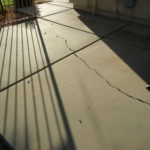
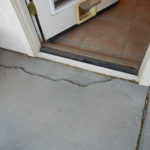
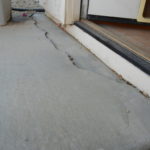
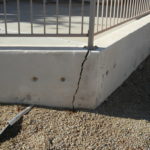
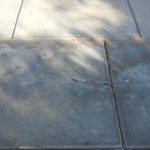
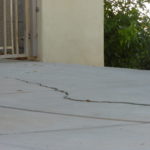
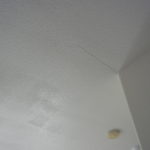
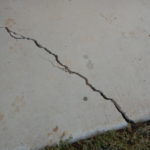
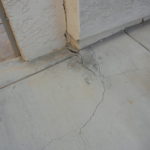
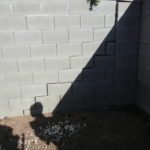
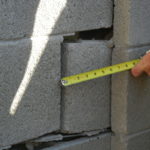
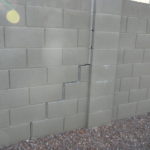
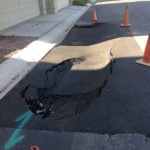
Expansive Soil can cause Expensive damage
Soil Compaction
Soil Compaction or oil subsidence occurs when the soil is to loose and the weight of the structure causes it move. Soil compaction can lead to cracked drywall, foundation, and stucco.
Sulphate & Chloride
Please review our section on Sulphate & Chloride defects.
Saturated Soil
Saturated Soil is a result of the natural water table being just below the surface of the soil and requires special water management systems and or countermeasures in the foundation’s design.
Drainage
Please review our section on drainage defects.
Soil Movement
Soil Movement involves landslide or slow-moving landslide conditions.
